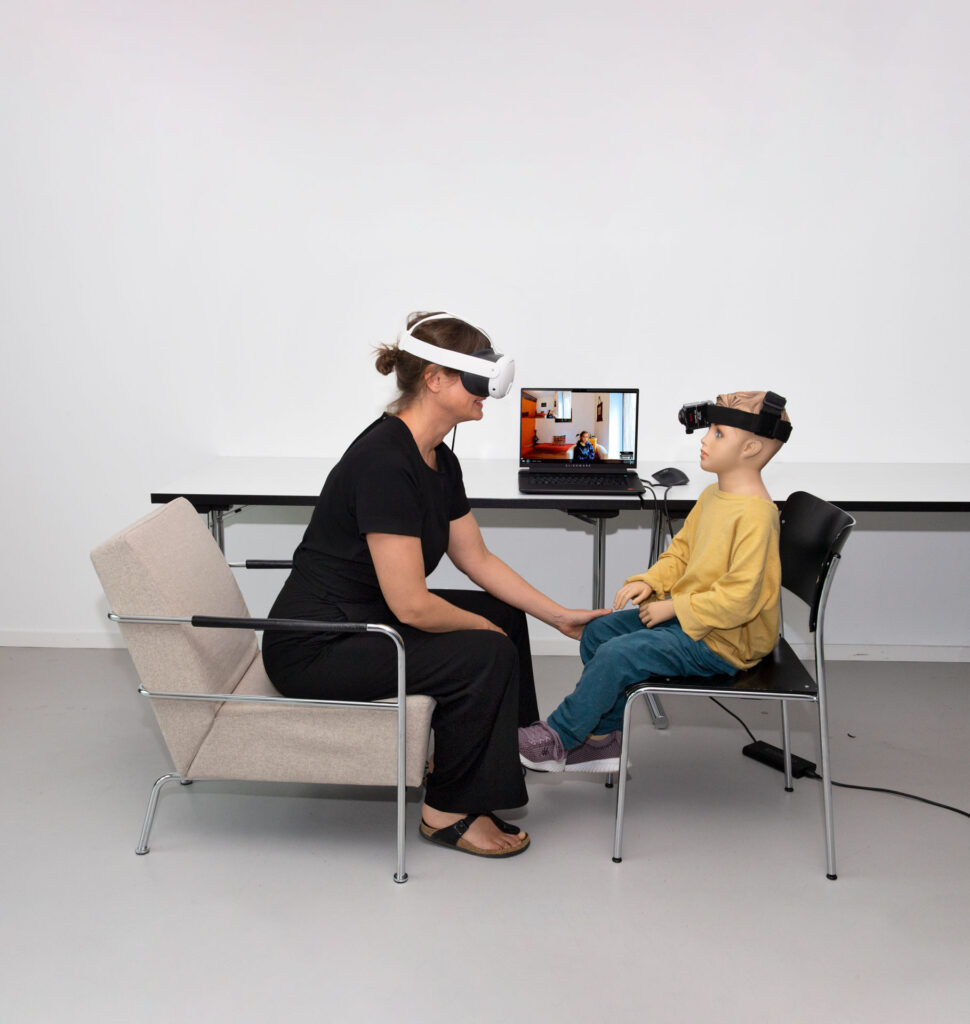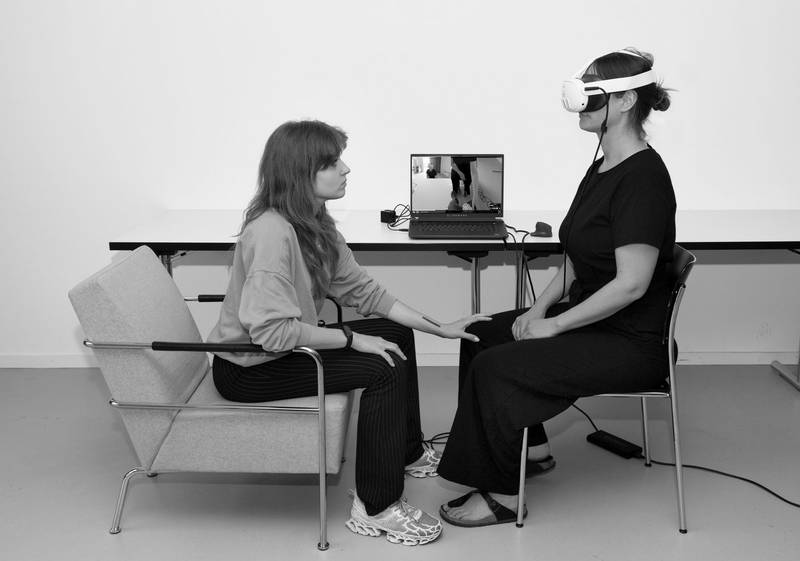Artificial intelligence is currently a hot topic, often accompanied by worried predictions. However, an interdisciplinary team of researchers from the ZHdK, the University of Zurich and the University Hospital Zurich is showing how AI technologies can have positive applications in a therapeutic context.

The project “The impact of Deepfakes in virtual reality scenarios for mental health therapy” investigates how deepfake technology and virtual reality can be used in the treatment of childhood trauma. One innovative approach is to virtually confront patients with their younger selves. With the help of AI, the childlike face of the affected person is reconstructed and projected onto a doll. In a protected setting, patients can enter into a dialog with this digital image of their child self. An encounter that can provide comfort and make it easier to process difficult memories.
The project was funded in the 2nd project call. The idea arose from the collaboration between Paulina Zybinska, a graduate of the Master in Interaction Design at the ZHdK, and Marte Roel, a postdoc at the Psychological Institute of the University of Zurich. Inspired by their experiences in the “Planet Digital” exhibition, they further developed the concept together with Prof. Birgit Kleim from the Psychiatric University Clinic Zurich.
Zybinska contributes her research on false memories, which she interpreted artistically in her master’s thesis. She refers to studies that show how strongly our perception can be influenced by repeated narratives and sees great potential in the combination of technology and therapeutic approaches.
The research project shows that deepfake technology, often viewed critically, can also be used positively. In the future, patients could use this method not only to reflect on the past, but also to develop new perspectives and find comfort.
Further information can be found in the article “The algorithm, the VR headset and me” by Flurin Fischer, which was published in the university magazine Zett and on 10.12.24 on zhdk.ch.
